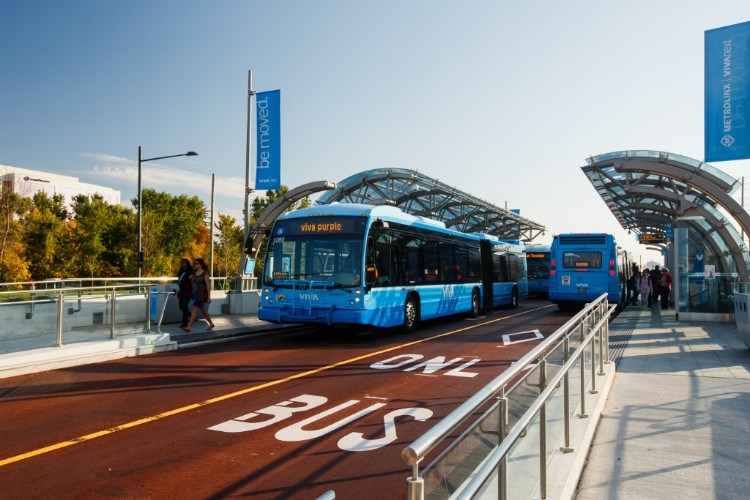York Region is taking a financial hit to keep transit fares frozen for another year.
Council committee of the whole voted for a recommendation Feb. 10 to keep transit fares steady for the third consecutive year. The freeze will carry on through the rest of 2022 and into the first half of 2023. The move is projected to cost $600,000 in 2022 and another $600,000 in the first half of 2023.
Acting commissioner of transportation services Ann-Marie Carroll said with transit services still reduced due to the lower ridership during the pandemic, it does not make sense to increase fares.
“Freezing transit fares supports travellers who are dependent on public transit for essential travel in York Region during the COVID-19 pandemic,” Carroll said.
The fares will remain steady at $4.25 cash for most rides or $3.88 for adults when using a PRESTO card or payment app. Other rates for card use will also remain steady, including $3.03 for youth and $2.40 for seniors and children. Fares are due to be set in place July 1.
Carroll said the region is managing the financial burden through the operational budget and support from upper levels of government. However, she said staff is working with transit association partners to advocate for additional government funding to help post-pandemic recovery.
“York Region Transit continues to manage impacts to operating costs by adjusting service levels to meet demand,” Carroll said. “As ridership returns and service is increased to promote additional travel, staff will continue to analyze the impact to revenue.”
A recommendation to remove a double fare when transferring between the York Region and Toronto transit services is also going forward, though transit staff expects that to take years to implement if approved.
Carroll noted that several transit agencies, including the Toronto Transit Commission, are also not planning to increase fares in 2022.
Freezing fares will "ensure continued accessibility for those who use public transit as their primary means of transportation to access work and essential services," she said.



